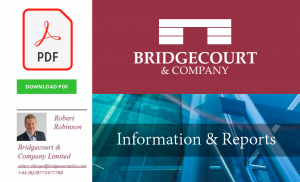Hybrid Bonds & Not for Profits
Hybrid bonds may have a useful role to play in the capital structures of not for profit entities that have exposure to commercial risk. Not for profit entities, such as housing associations, are non-distributing and therefore traditional hybrid products such as convertible bonds (where debt is converted into equity) are not suitable. It is possible, however, to issue bonds that have equity like features such as the ability to miss payments for periods of time, but which do not convert into equity. There needs to be a sufficient degree of “equity like” features, however, for such a hybrid bond to be considered as a “non-debt” instrument.
A number of regulated not for profits in other sectors, such as mutual insurers, have these instruments but they have not been used in the social housing sector. A hybrid bond would need to be structured to meet specific rating agency criteria in order for it to be considered “equity-like” and therefore not increasing the level of indebtedness of the borrower.
Hybrid bonds would help provide a cushion for on balance sheet risk. This should help support the credit ratings on existing debt and could be considered as an alternative to some off balance sheet financing arrangements where risks, rewards, and controlling interests are typically shared with a commercial partner.
Read more about hybrid bonds by downloading our report below.


